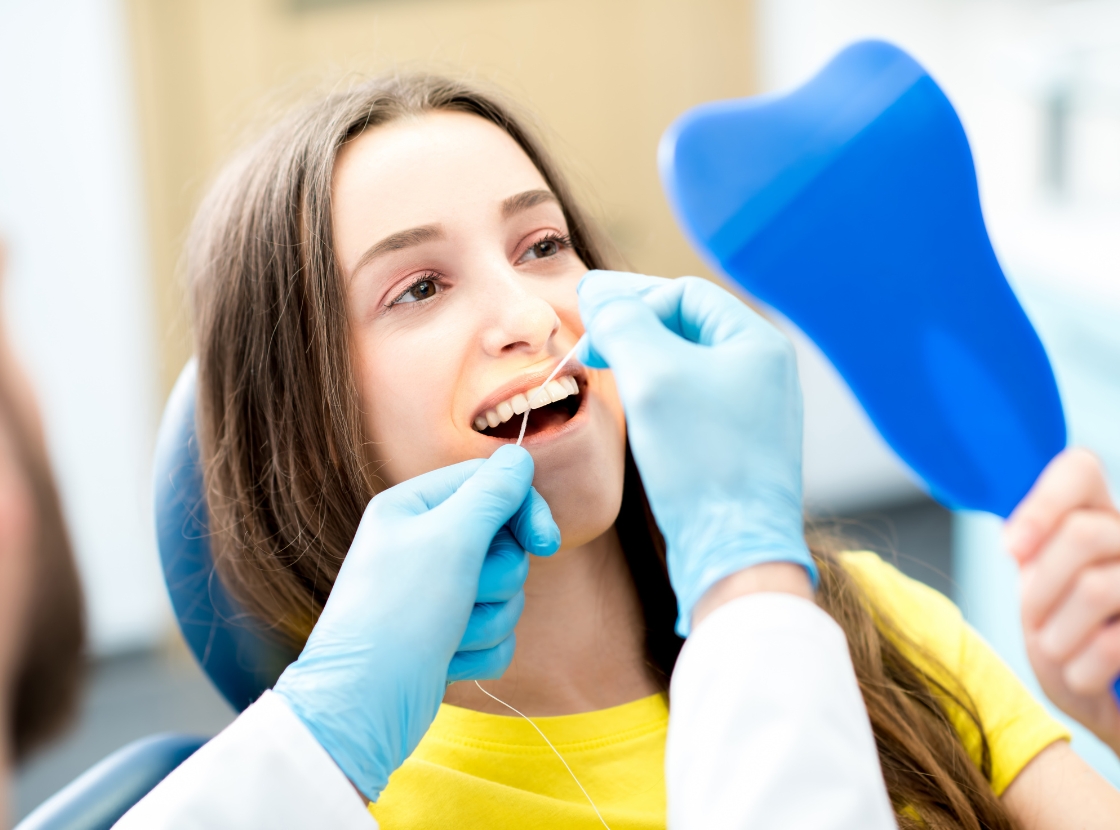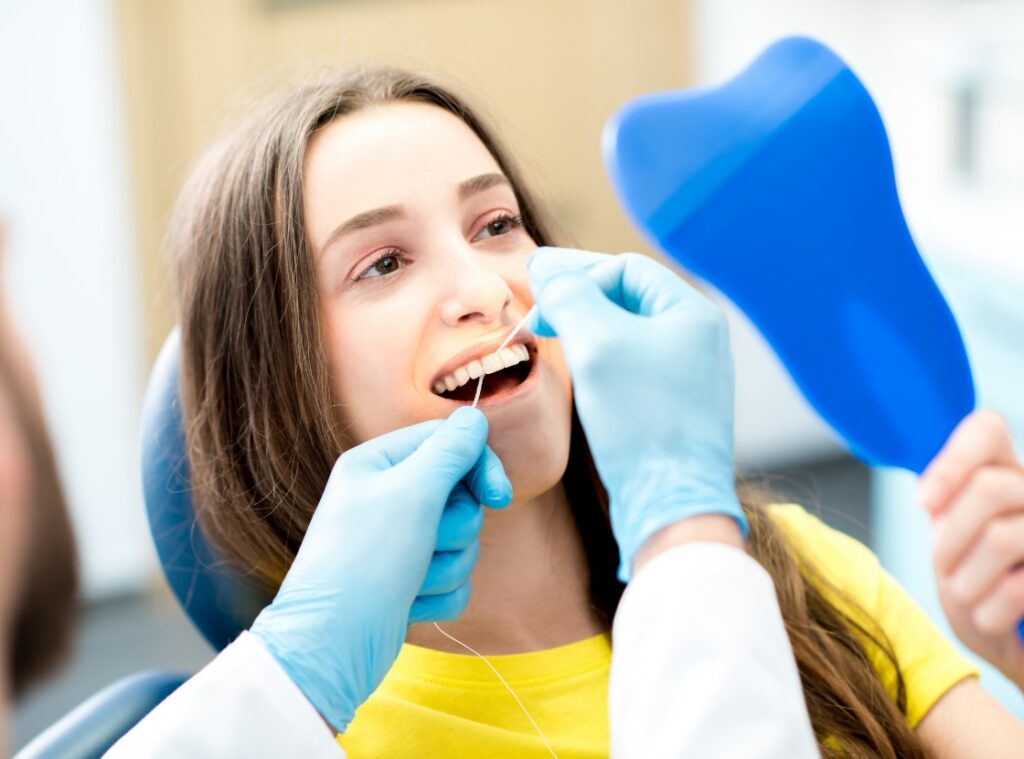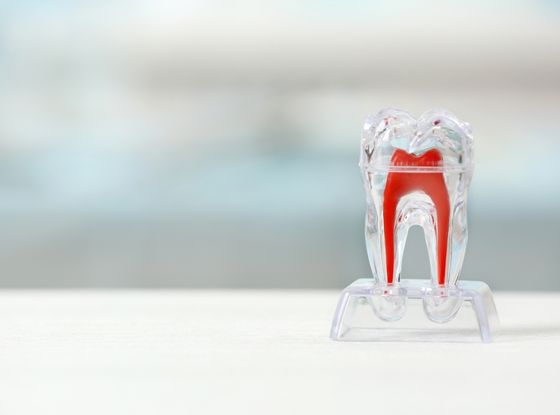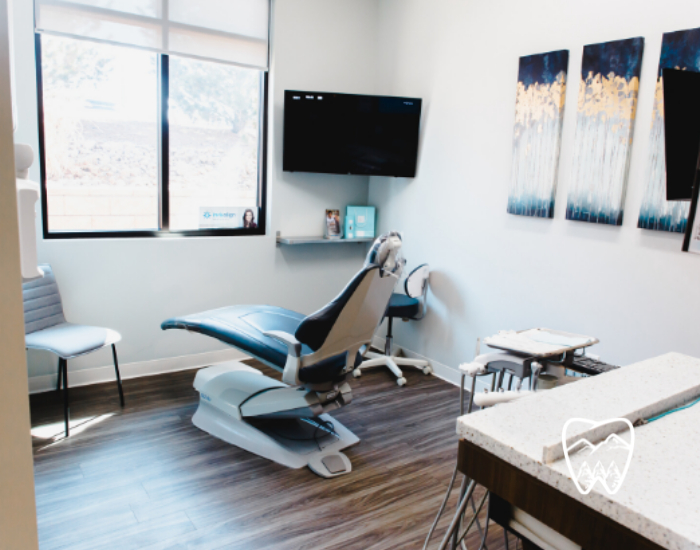Preventing Gum Disease

Preventing Gum Disease: Strategies for Healthy Gums, as Suggested by Green Dental Care
Gum disease, also known as periodontal disease, is a common but preventable oral health concern that affects the gums and supporting structures of the teeth. As the best dentist in Parker, CO, Green Dental Care places a strong emphasis on preventive care and offers valuable strategies to keep your gums healthy and vibrant. Let’s explore essential tips to prevent gum disease and maintain optimal gum health.
Commit to Daily Oral Hygiene
The foundation of preventing gum disease lies in maintaining a consistent and effective oral hygiene routine. Green Dental Care recommends the following practices:
- Brushing: Brush your teeth at least twice a day using fluoride toothpaste and a soft-bristled toothbrush. Pay attention to the gumline, using gentle, circular motions to remove plaque and bacteria.
- Flossing: Flossing is crucial for reaching areas between the teeth and along the gumline where your toothbrush may not reach. Make it a habit to floss once a day to remove plaque and prevent gum inflammation.
- Mouthwash: Consider using an antiseptic or antimicrobial mouthwash to reduce bacteria and control plaque buildup. Green Dental Care can recommend the most suitable product for your needs.
- Regular Dental Check-Ups and Cleanings: Scheduling regular dental check-ups and cleanings is a key component of preventive dental care. Green Dental Care recommends biannual visits for professional cleanings and examinations. During these appointments, our dental team can identify early signs of gum disease and provide personalized guidance on maintaining optimal oral health.
Know the Signs of Gum Disease
Being aware of the signs and symptoms of gum disease is essential for early intervention. Green Dental Care encourages patients to watch for the following indicators:
- Bleeding Gums: Healthy gums should not bleed during brushing or flossing. If you notice bleeding, it could be a sign of gingivitis, the early stage of gum disease.
- Swollen or Red Gums: Inflammation and redness can be early signs of gum disease. Healthy gums should have a pink color and a firm texture.
- Persistent Bad Breath: Chronic bad breath, also known as halitosis, can be a symptom of gum disease. Bacteria in the mouth contribute to unpleasant odors.
- Receding Gums: If your gums are pulling away from the teeth, it may indicate the progression of gum disease. This can lead to tooth sensitivity and an increased risk of tooth decay.
Maintain a Healthy Lifestyle
Green Dental Care emphasizes that overall health and lifestyle choices impact oral health. Adopting a healthy lifestyle can contribute to gum disease prevention:
- Balanced Diet: Eat a diet rich in vitamins and minerals, as well as low in sugars and processed foods. Nutrient-rich foods support gum health and overall well-being.
- Avoid Smoking and Tobacco Use: Smoking and tobacco use are significant contributors to gum disease. Quitting these habits can improve both your oral health and overall health.
- Manage Stress: Chronic stress can compromise the immune system and increase the risk of gum disease. Practices such as exercise, meditation, and deep breathing can help manage stress levels.
Stay Hydrated
Drinking an adequate amount of water is beneficial for overall health, including oral health. Green Dental Care recommends staying hydrated to support saliva production. Saliva helps neutralize acids, cleanse the mouth, and prevent the growth of harmful bacteria.
Contact Us Today!
Preventing gum disease is a collaborative effort between patients and their dental care providers. With the guidance of Green Dental Care, the best dentist in Parker, CO, individuals can adopt effective strategies to maintain healthy gums and promote overall oral well-being. By committing to daily oral hygiene practices, scheduling regular dental check-ups, knowing the signs of gum disease, adopting a healthy lifestyle, and staying hydrated, you can take proactive steps towards a vibrant and disease-free smile. Trust Green Dental Care to be your partner in achieving and maintaining optimal gum health.







